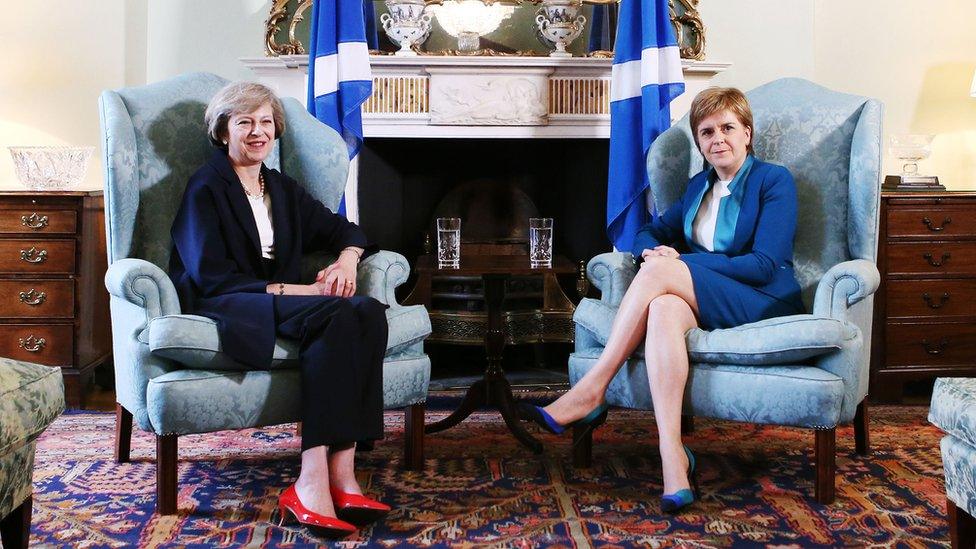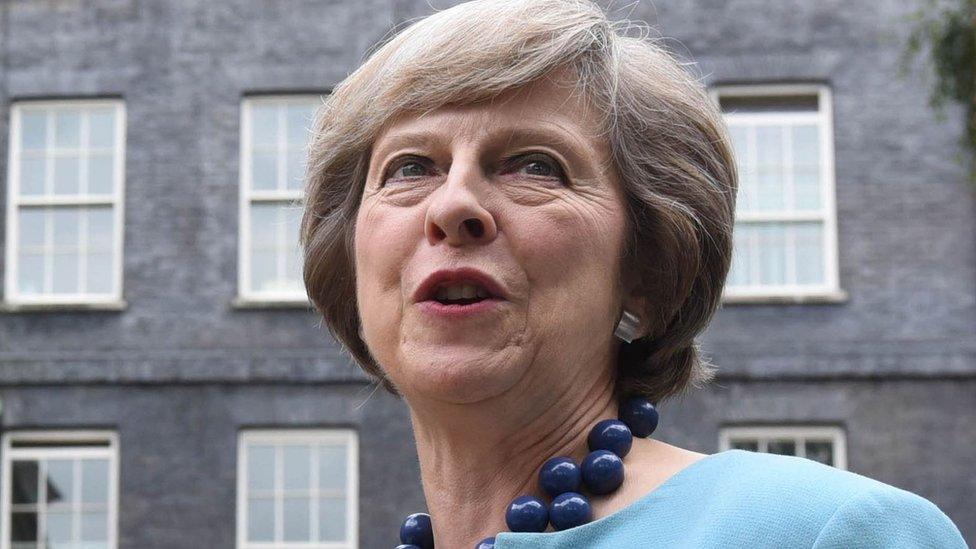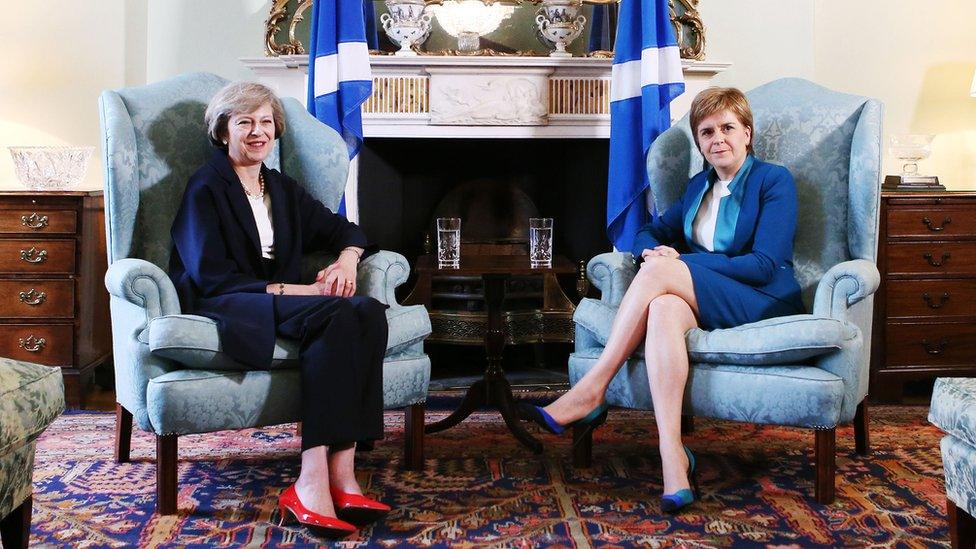May: Scots will be 'fully engaged' in Brexit talks
- Published
Mrs May spoke to BBC Scotland ahead of the Conservative Party conference in Birmingham
UK Prime Minister Theresa May wants the Scottish government "fully engaged" in Brexit talks but insists her government will take the lead in all areas.
Mrs May emphasised that ministers in Edinburgh could have no veto over the process.
The Conservative leader spoke to BBC Scotland ahead of her party's conference in Birmingham.
The Scottish government has accused the UK government of being "irresponsible" in not clarifying what Brexit means.
Following the UK's vote to leave the EU in June's referendum, Scottish politicians have called for more detail about their role in the coming Brexit negotiations.
The prime minister said she would engage with Holyrood "on the issues that particularly matter to Scotland".
But she said she was firmly against the prospect of a second Scottish independence referendum.
Asked about the fact 62% of Scots who turned out in June voted to remain in the EU, the Conservative party leader said the "overall" UK had voted to leave.
She said: "What I am very clear about is that, as we look into these negotiations, we will fully engage the Scottish government in the discussions that we have, in preparing what position that the UK is going to take.
"But also we are going to make a success of this. We need to ensure that we get the best deal, the right deal for the UK in trade of goods and services, deliver for people on their desire for control of movement of people from the EU into the UK.
"But also alongside that, we look at the opportunities that will open up to us when we leave the EU for trade around the rest of the world. I want us to be a global leader in free trade, and make sure those opportunities are spread across the UK."

Theresa May met Nicola Sturgeon in Edinburgh shortly after taking office as prime minister
A spokesman for First Minister Nicola Sturgeon said: "We remain no closer to knowing what Brexit means - and three months on from the vote that is an increasingly irresponsible and untenable position for the Tories.
"The prime minister gave the first minister a very clear undertaking when they met in July that she is prepared to consider options that the Scottish government puts forward to protect Scotland's interests, and we expect that commitment to be honoured.
"The simple fact is that it is the Tories that have put Scotland's interests on the line through a referendum that threatens to take us out of the EU against our will - so the onus is very much on them to show they are serious about engaging positively with a view to safeguarding those interests."
The Scottish government's Brexit minister, Michael Russell, recently met his UK counterpart David Davis to discuss Scotland's role in the negotiations.
Mrs May said the talks were "for the United Kingdom to conduct with the European Union", and insisted that they would be a success.
The prime minister said she would "listen and take account of the particular concerns" of Scotland and other parts of the UK.
She said: "What I want to ensure is that we hear from all parts of the UK, and that we hear from the Scottish government and we engage with them on the issues that particularly matter to Scotland.
"But what is crucial is that I am determined that we will make a success of this, and I am really clear there will be opportunities for the whole of the UK as we leave the European Union.
"We must make sure we grasp those opportunities, but also I want to be a government that works for everyone, not a privileged few. And that means ensuring the benefits of those opportunities for economic growth are spread across the whole of the UK."
'Strong union'
In July, Mrs May travelled to Edinburgh on her second full day in the job of prime minister for talks with First Minister Nicola Sturgeon.
The discussions were inevitably dominated by the issue of Brexit.
At that point, the prime minister said she was "willing to listen to options" about Scotland's position and role, although she later noted that some possibilities - such as a second independence referendum - may be "impracticable".
She has now told BBC Scotland the key issue was not whether there could be a second referendum, something Ms Sturgeon has described as "highly likely", but whether there should be - with her answer "overwhelmingly no".
She said: "I continue to believe that Scotland is better off as part of the United Kingdom, and I believe passionately in the strong union that there has been between Scotland and the rest of the United Kingdom for so long.
"Our history, the economic ties we have - I want Scotland to remain part of the UK.
"People talk about what's going to happen in terms of leaving the European Union for Scotland's trade - actually the economic importance of Scotland being part of the UK far overwhelms that."
The Conservative Party conference runs from Sunday 2 October, to the following Wednesday, with Scottish Tory leader Ruth Davidson speaking on the final day.
- Published26 September 2016

- Published15 July 2016
